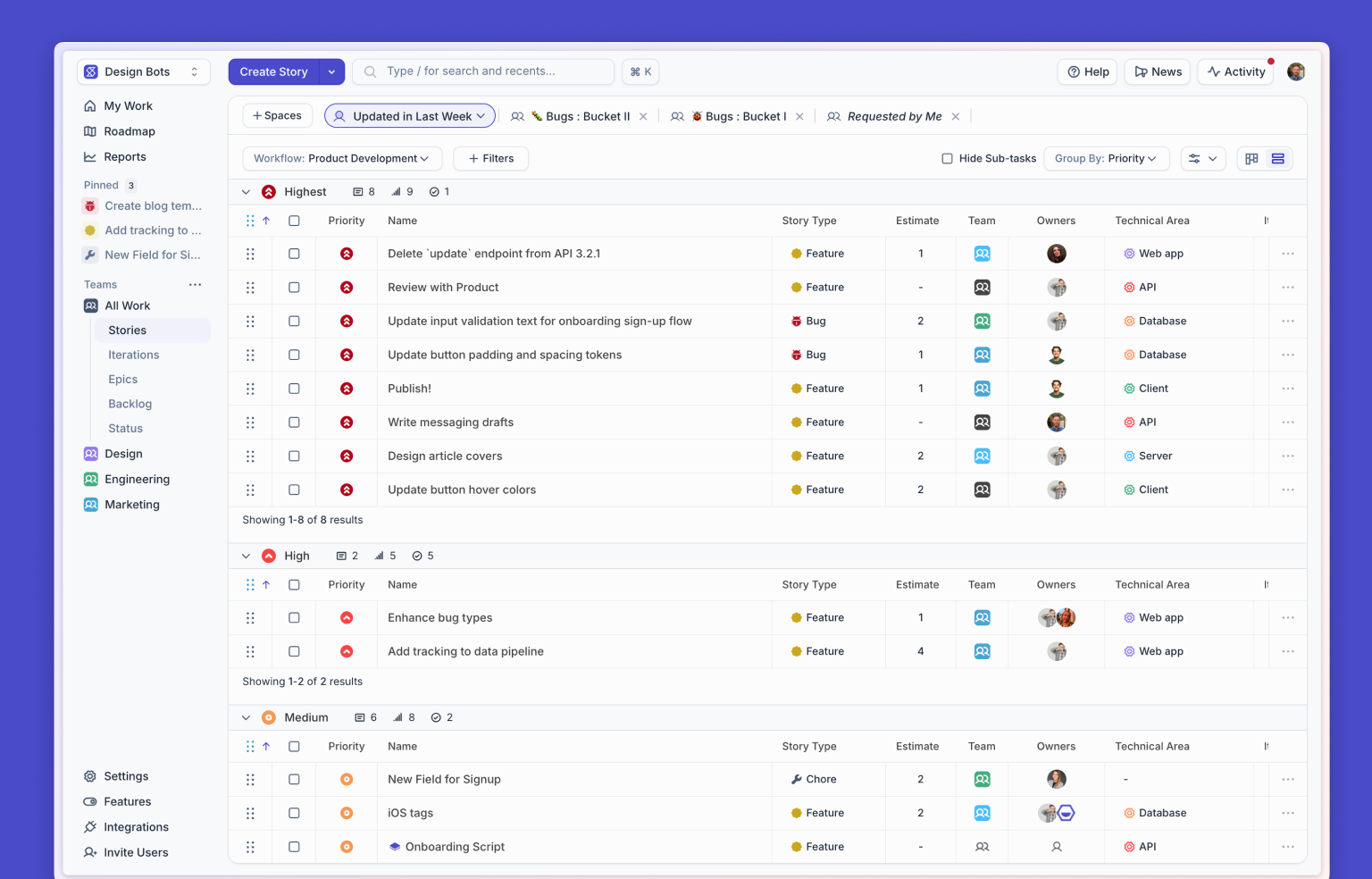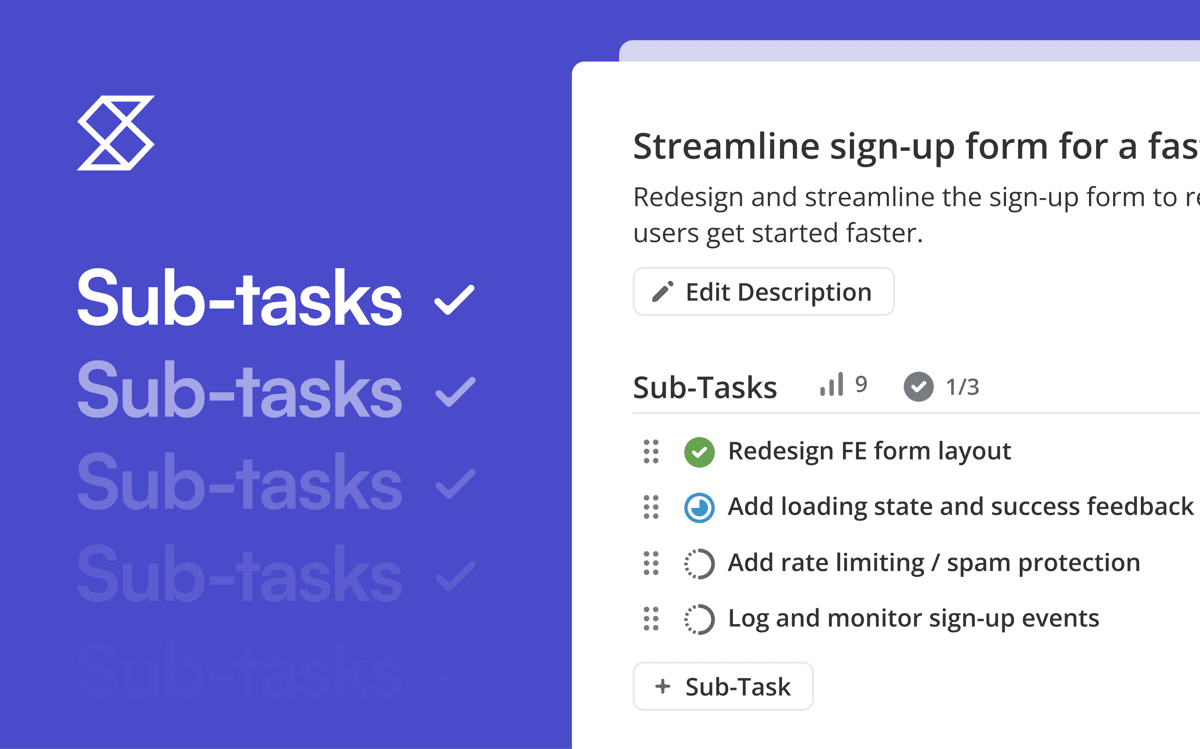Learn how to steer your career into tech, and how employers can help.
As the tech industry booms, more and more people find themselves working at startups despite their lacking a traditional computer science or engineering background. In fact, here at Shortcut, we have a painter, a classically-trained actor, a fashion designer, and a former rock band manager among our ranks. And we’re not alone — a 2016 Stack Overflow survey of developers showed that over two-thirds of respondents were self-taught to some degree, and slightly less than half had a computer science degree.
As the country experiences record-low levels of unemployment, the challenge of sourcing and retaining skilled labor becomes even greater. University computer science programs have long fallen short of fulfilling demand, and the gap is only widening as of late. So many Silicon Valley companies have had to search on a global level and bring in international technical talent to keep up with developing and maintaining competitive products and customer demand. In a challenging economic and socio-political landscape, a greater number of employers are also warming up to technical candidates without engineering degrees.
With all of that said, you might be left wondering how you can ride this wave and transition into a tech position, or, if you’re an employer, how you can make your company more attractive to these career-changing jobseekers. Read on to find out:
Marching in From Bootcamps
Many developers without computer science degrees come from coding bootcamps. Bootcamps can be free or paid (with an average cost of $11,450), last two to six months, and claim that they can teach developers everything they need to get a job — without the cost of a college degree. These technical intensive programs are typically chosen by people who don’t have the time or financial resources to go to college, need a flexible schedule (many offer online versions), and want to get into the workforce fast.
This might surprise you if you think of a college degree as a prerequisite for a good job, but employers are actually becoming fairly receptive to these non-traditional candidates. In an Indeed survey of over a thousand HR managers, 84% said that they found bootcamp graduates to be just as or more prepared than college graduates. Another TripleByte survey with a smaller sample size found that bootcamp graduates did as well or better than college graduates when it came to addressing practical programming challenges.
Crossing the Career Chasm
While some candidates come through coding programs, others come knocking on the doors of startups directly from other fields. When she was working as a grade school teacher, Yasmin Nozari followed her interest in game development all the way into a role in product at storage company MakeSpace:
“I’m naturally curious about other people, so I’d just start reading about different careers, how people got started and how they figured these things out. I even love reading job postings and reading about companies. If I read about a company in Fast Company, I’d go look at their job postings and try to understand how the company works internally.”
{{testimonial-component}}
Abby Armada, our newest customer support hire at Shortcut, also comes from a non-tech background. Her degree is actually in fashion and costume design, and while she enjoyed it, she was tired of the inconsistency of the jobs. While working a part-time job in retail, she discovered she had a knack for building great customer experiences and that she thrived on teaching others to do the same. Noticing this talent, a friend told her about some tech support openings at his startup, and put her on a new career trajectory.
There’s also nothing wrong with skipping the training programs and going straight to a tech company. It’s not uncommon for people to start as “non-technical” hires and then transition over to a more technical role (moving from operations or marketing to product or engineering, for example). Whether people come through bootcamps or as internal hires, what’s important is that management fosters a culture that is welcoming to newcomers and recognizes the value they can bring to the company.
Looking Outside the Traditional Pool
While some leaders may be concerned that coming from a background that isn’t strictly computer science can make a person a weaker team member, that’s not necessarily true. Studies have shown that having a wider set of experiences to draw from can help teams solve problems faster. Essentially, problem solving is about drawing from your experiences and education. The more varied team members’ experiences, the more likely the team will be able approach challenges in a creative and nuanced way. As Ian Lotinsky of LearnZillion says:
"Innovation tends to happen in the context of a team, and having a diverse set of experiences and perspectives in the mix is going to lead more insights and better solutions."
<!-- Code for Testimonial component starts here-->
<div fs-richtext-component="testimonial-component" class="post_body_testimonial"><div class="post_body_testimonial-content"><div class="text-size-medium">
"Innovation tends to happen in the context of a team, and having a diverse set of experiences and perspectives in the mix is going to lead more insights and better solutions."
</div><div class="post_body_testimonial-name"><div class="semi-para-title">
Ian Lotinsky
</div><div class="semi-para-title">
CTO at LearnZillion
</div></div></div>
<!-- Code for Testimonial component ends here-->
For employers who are concerned about hiring people who don’t have a formal engineering degree, there are a few things you can do to set yourself (and them!) up for success:
- Formalize your processes so that it’s easier to onboard junior hires. (Get more tips on employee onboarding here.)
- Consider setting up an internship program, to let you experiment with bringing in less-experienced people and figure out how to make your company a more welcoming place for them.
- Identify the people on your team that could serve as mentors to newcomers.
- Be rigorous, but fair, in your interviewing. Puzzles and trick questions are often discriminatory, and rarely indicative of how people will perform on the job.
How to Shift Your Career Track
If you’re interested in pursuing a new career in tech, the idea of jumping career tracks can seem daunting. Here are a few tips to get you started:
Decide what kind of role you’re interested in
When most people think of a career in tech, they think of a software engineer — but that’s not the only option. There are also options in user research, UX design, product management, marketing, and more.
Think about what interests you:
- Do you want to create it? Then, yes, software engineer would be the role to look at. But if you’re more interested in how people interact with it, then something around user research or experience might be a better fit.
- Are you more interested in how engineering, user research, and marketing can work together to create an amazing product? Look into product management.
- Do you want to get the word out about the product? Then marketing (whether it’s product marketing, technical marketing, content marketing, or another niche within marketing) might be your speed.
Look at applicable bootcamps
Once you’ve figured out what it is you want to focus on, you can start looking at bootcamps and other learning tools. Codecademy and Freecodecamp can get you started learning for free. For paid bootcamps, Switchup has a list that includes user reviews that’s worth taking a look at. And don’t forget to take a browse through the app store of your choice and see what games and apps are available to help you learn, like SwiftBites or SoloLearn.
There’s also General Assembly, which offers classes and courses on coding, but also marketing, product management, design, and data science.
Keep up with the industry
Similar to how Yasmin pursued her interest when she decided to switch over to product management, you can follow your curiosity. Look for Meetups in your area that are related to your field of interest and choose a few industry news sources to keep up with (like Ars Technica, Mashable’s tech section, or TechCrunch). You can also keep an eye on aggregators like HackerNews to see what people are talking about.
Carry over your expertise
Tech isn’t a monolith. There are hundreds of different niches and sub-industries underneath the umbrella, and this can give you an edge. If you’re transitioning from working in education, you might pursue a role at an edtech company; if you used to work in nursing, healthtech could be a good fit for you.
Using your previous experience can not only give you a deeper understanding of the problems in the space (and how to solve them), it also makes you stand out from other applicants and can make up for having less technical experience.
Whether you’re hiring or looking to be hired, the industry needs you.
In 2016 alone, the tech industry was responsible for nearly 7 million employees and it’s only projected to grow in the coming years. Opportunity abounds for intrepid employers who are open to those with nuanced skill sets and potential employees willing to take the leap into tech.










.png)






%20(788%20x%20492%20px)%20(1).png)
.png)

